Keywords: Wage Inequality
-
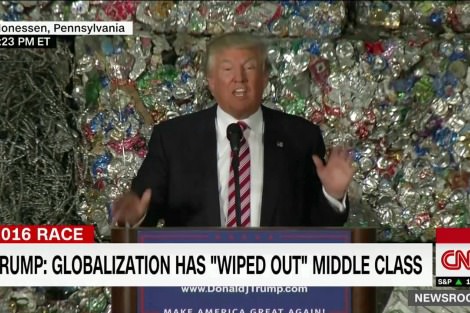
ECONOMICS
- David James
- 07 February 2017
10 Comments
Many defenders of globalisation express frustration at the rise of Trump and what they see as an ignorant and self-defeating backlash against its virtues. But they have no answer to the most pressing question: Is the global system there to serve people, or are people there to serve the global system? They also never address a central contradiction of globalisation: that capital is free to move, but for the most part people are not, unless they belong to the elite ranks.
READ MORE 
-

ECONOMICS
- Veronica Sheen
- 13 December 2016
5 Comments
Over the last two decades we have seen a process of job polarisation. There has been growth in high end jobs, but mostly in low end jobs, the outcome of which has been the hollowing out of middle level jobs. This hollowing out of the middle also relates to greater wealth polarisation, as French economist Thomas Piketty has brought to light. The labour market is under a lot of pressure from many angles, so what does this mean for the project of women's equal opportunity in employment?
READ MORE
-
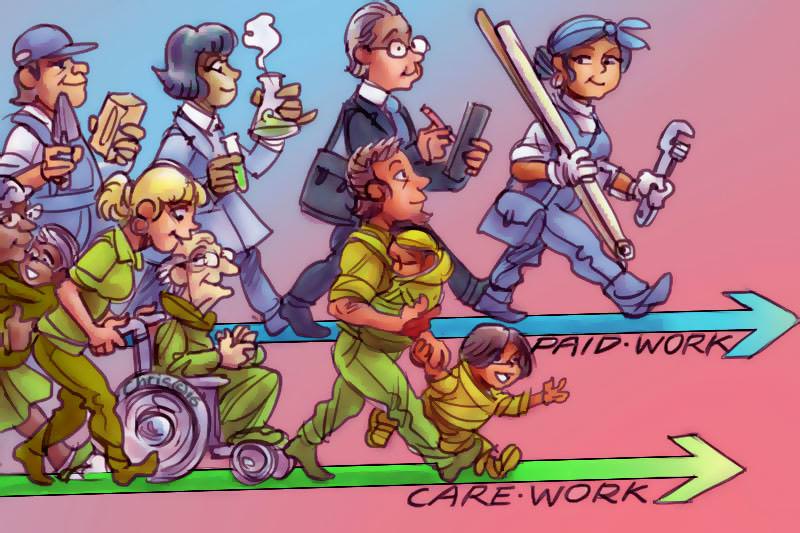
AUSTRALIA
- Kate Galloway
- 25 November 2016
2 Comments
Civil society requires care work. All of us, at various stages of our lives, will be dependent on others for our daily needs. Most of us will likewise care for others at some point. The challenge is how to allocate caring responsibilities throughout society, while allowing also for the paid work that secures economic independence. At the moment the tacit expectation that women will do unpaid care work - and that men (theoretically) are unburdened by care work - contributes to economic inequality.
READ MORE
-
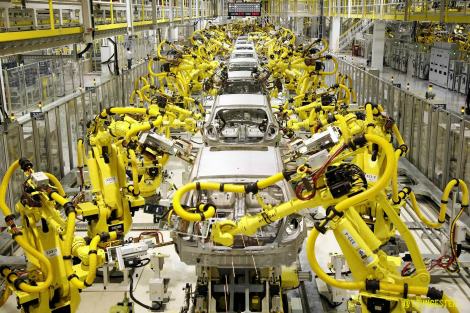
ECONOMICS
- David James
- 21 November 2016
9 Comments
The idea that machines will replace humans, transforming the work force, is far from new. As technology develops at an accelerating pace, there is growing concern that new social divisions are emerging. While there are signs of deepening social divisions between the rich and the rest of the working population, previous predictions of a collapse in employment have proven to be wrong. This is largely because a confusion arises from conflating production and transactions. They are not the same thing.
READ MORE
-

AUSTRALIA
- Fatima Measham
- 16 October 2016
12 Comments
Much has been made about how Republicans benefited from the 'birther' campaign and the Tea Party. It suited them to have proxies undermine the executive branch. In other words, the political right only has itself to blame for the nihilism which now engulfs it - and potentially, the nation. But the failures of the left also bear examination. While Clinton's current lead cannot be attributed entirely to her virtues, the polling gap between her and Trump should have been much wider, earlier.
READ MORE 
-

INTERNATIONAL
- Gillian Bouras
- 23 May 2016
11 Comments
In America, Rex Tillerson, CEO of Exxon, received a salary of more than $40 million in 2012. He is apparently a devout Christian, so I wonder whether he ever worries about Matthew chapter 19, verse 24: it is easier for a camel to go through the eye of a needle than it is for a rich man to enter into the Kingdom of God. The 400 richest Americans own more wealth than the GDP of India. In contrast, vast numbers of their fellow citizens have less than $1000 in their savings and cheque accounts combined.
READ MORE 
-

AUSTRALIA
- Kate Galloway
- 11 September 2014
14 Comments
Despite historical gains for women in terms of formal equality, structural issues - wage gap, superannuation gap, childcare, unpaid caring, inequitable income distribution - have not gone away. I do not see why my older women friends should be burdened with accumulated poverty simply because they are women. They carry a material burden because their unpaid work was considered to be performed 'for love', undeserving of financial security.
READ MORE 
-

AUSTRALIA
The Government's McClure interim welfare report is predicated on the big lie that welfare is the problem and the market is the solution. The long wait of the excluded for some of the wealth and resources, for some of the hope to trickle down, is one of the most audacious con jobs in modern history. It is not misfortune. It is not a mistake. It is not the fault of the excluded. It is an attack against ordinary people who are made to bear the burden of inequality.
READ MORE 
-

AUSTRALIA
'You don't help young people, or older people, or people with disabilities, or single mums, into jobs by making them poor. You don't build people up by putting them down. And as even the OECD acknowledges, you don't build a strong economy by increasing the level of inequality. You don't create a strong country on the backs of the already poor.' Statement by John Falzon
READ MORE
-
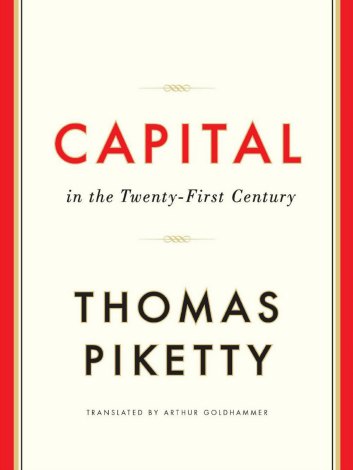
ECONOMICS
- Fatima Measham
- 07 May 2014
16 Comments
French economist Thomas Piketty argues that current conditions have set us on track for a return to 19th century-levels of inequality. The Commission of Audit proposals suggest that the auditors and the Government are keen to expedite this neo-Dickensian era. It's all done in the name of 'incentives' toward 'personal responsibility', but this cannot remain coherent in the face of those who will be hit hard by the proposed suite of cuts and co-payments.
READ MORE 
-
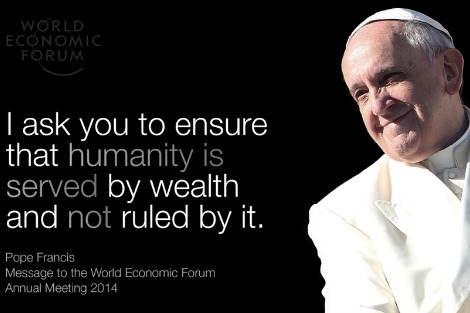
AUSTRALIA
- Andrew Hamilton
- 30 January 2014
27 Comments
Pope Francis' message to the World Economic Forum at Davos developed the Catholic understanding that government and business economic actions should be governed not by trust in the workings of the free market, but by care for the good of the whole human community. Coincidentally the Australian Government announced a review of welfare payments.
READ MORE 
-

AUSTRALIA
- Greg Foyster
- 02 September 2013
19 Comments
Throughout the election campaign, both major parties have pledged to address 'cost of living' pressures. But a quick comparison with the economies of other industrialised nations confirms that Australians have nothing to complain about. If prices rise by 5 per cent but incomes rise by 10 per cent, households are better off, even if the cost of a petrol reaches a new pinnacle.
READ MORE 